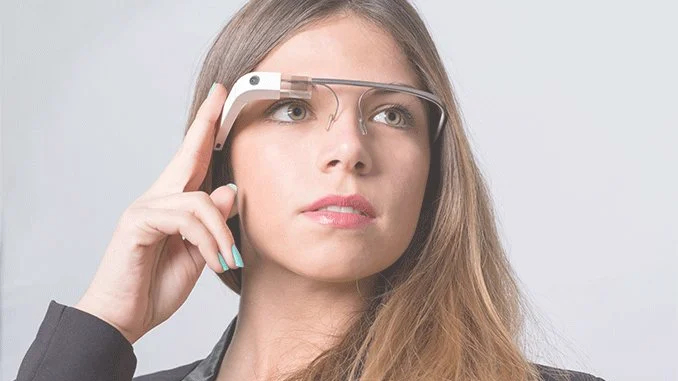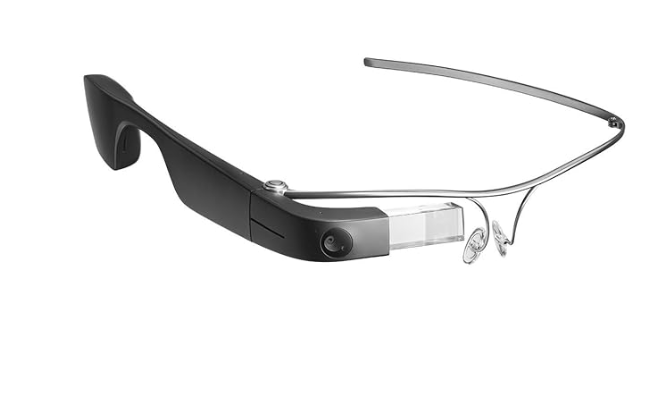
Since their announcement, Google Glass has been the subject of discussion: many have spoken of a project intended for condemnation from the beginning and the announcement itself has been experienced as a coup de grace. Well, we can consider much of what has been reported to be misleading. We separate the facts from speculation and evaluate some points in the Glass route.
Glass is no longer part of Google: TRUE.
Google believed that Project Glass was ready to be promoted to Google, the R&D group that works on futuristic products like cars capable of “driving themselves”. Today the project has become a business unit in full swing within Google and therefore can benefit from larger budgets, a greater number of resources and above all has the opportunity to draw on the pool of talents present in the company. Good news that leads us to hope for the future of Google Glass.
The Glass Explorer program is over the absence of consumers willing to try them: FALSE.
The conclusion of the Glass Explorer program had nothing to do with consumer adoption of the product. Its end marks the move to a phase of growth of Glass and represents a prerequisite for every future release of the new hardware. In other words, Google can now put into practice what it has learned during this phase to improve the next Glass devices.
People with key, high-profile roles engaged in the development of Google Glass have left the company: TRUE.
Some Google employees engaged in Project Glass, including the lead developer Babak Parviz, the head of electrical engineering department Adrian Wong and developer relations director Ossama Alami, recently left the company. Google, however, has demonstrated its interest and commitment to the product by assigning the leadership of the Glass business unit to its hardware talent, Tony Fadell (who among other things has already achieved several remarkable successes with the iPod and the Nest).
Key Improvements and Features of Google Glass 2024
- Improved AR Capabilities: The unused Google Glass highlights progressed increased reality capabilities, permitting for consistent integration of computerized data with the genuine world. Moved forward sensors and preparing control empower more exact and responsive overlays.
- Privacy-focused Plan: Tending to past protection concerns, the upgraded Google Glass incorporates unmistakable markers when recording or taking pictures. Improved information security measures guarantee client data is protected.
- AI Integration: Leveraging Google’s progressions in counterfeit insights, the unused Glass offers real-time dialect interpretation, relevant data conveyance, and personalized help, making it a capable apparatus for both individual and proficient use.
- Improved Battery Life: With a center on common sense, the modern emphasis gloats altogether moved forward battery life, supporting amplified utilize all through the day without visit recharging.

The Glass Collective consortium has been dissolved: TRUE.
The Glass Collective is a consortium created by Google Ventures and the two Silicon Valley venture capitalists, Andreessen Horowitz and Kleiner Perkins. The fact that the consortium has dissolved is proof of the maturity of the Google Glass market; the consortium was seen as a marketing stunt by Google to bring entrepreneurial interest around Glass.
The developers of the Glass Apps are abandoning their projects: FALSE.
9 out of 16 Glass app developers said they stopped working or abandoned their designs due to the absence of consumers or limitations of the device. Others have transferred their skills from project development for consumers to business development. Nevertheless, there are still a significant number of developers within the Glass project and there are about 100 apps available on the official website, including Facebook (report by Reuters).
Potential Applications
- Healthcare: Surgeons can access patient data and imaging without looking away from the operating table, improving precision and efficiency.
- Education: Students and teachers can benefit from immersive learning experiences, with real-time information and interactive content.
- Retail: Sales associates can provide personalized customer service and access inventory data without leaving the customer’s side.
- Field Services: Technicians can receive remote guidance and access technical documentation while working hands-free.
Glass’s official partners are losing confidence in the project: FALSO.
Although there have been setbacks in PR activities (particularly when Twitter has stopped its support for the Glass app), it still remains a stronghold of resolute partners. And despite Luxottica (the world’s largest eyewear manufacturer and Glass partner) has said it finds the “embarrassing” device, the partnership with the world’s largest eyewear manufacturer demonstrates that Google recognizes the importance of making consumer-friendly (and affordable) projects to make Glass much more attractive for a broader market.
Read also: Revolutionary AI model for the diagnosis of Ovarian Cancer